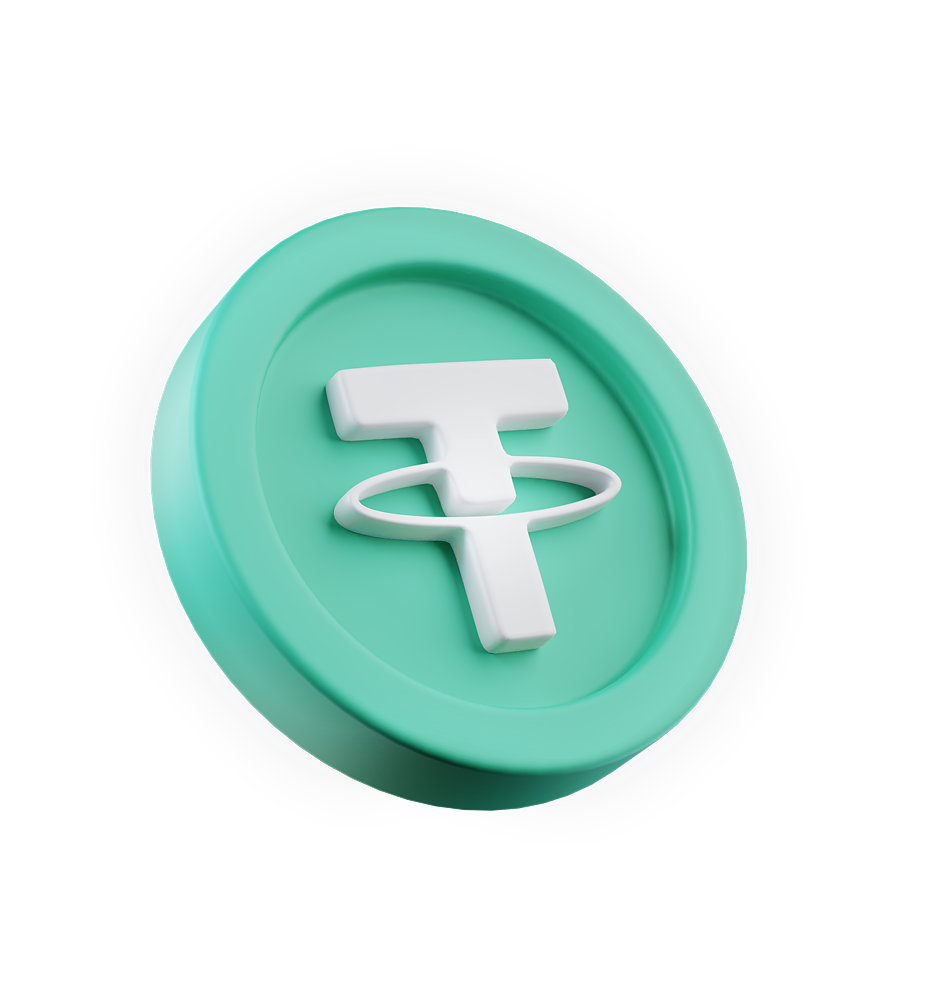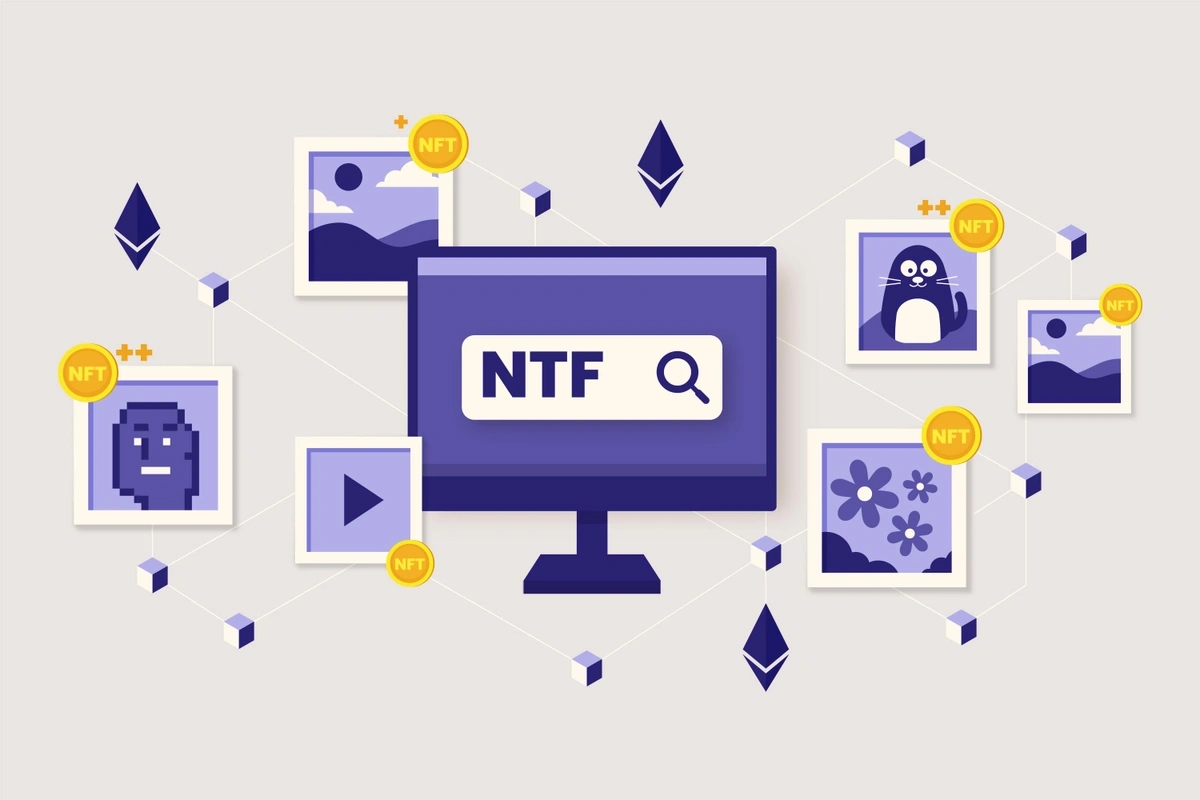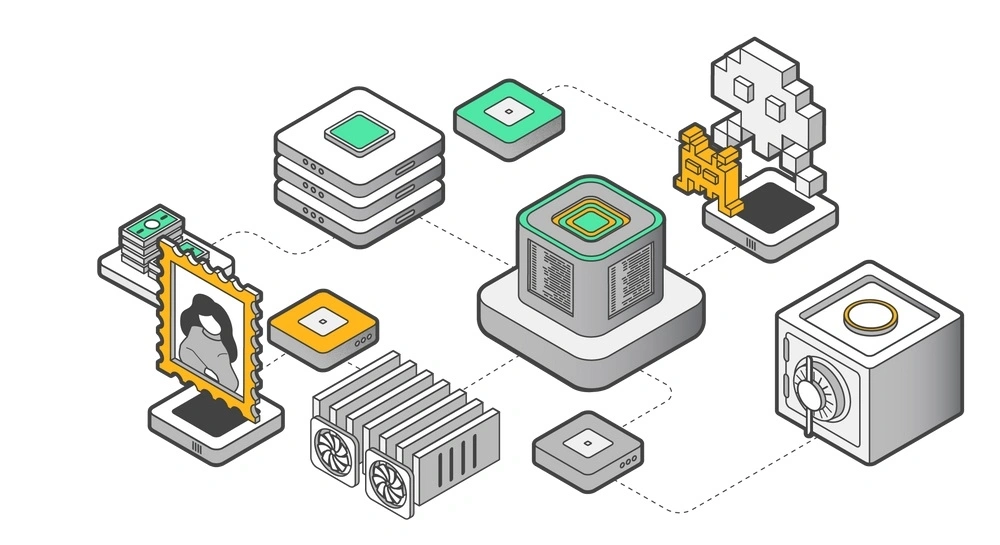Switzerland, a nation synonymous with financial innovation and stability, has embraced the digital currency era with open arms. This unique environment presents Swiss investors with unparalleled opportunities in cryptocurrency. This comprehensive article explores the best crypto wallets available for Swiss investors, highlighting their features, compliance with Swiss regulations, and their suitability for different types of investors.
Switzerland, a nation synonymous with financial innovation and stability, has embraced the digital currency era with open arms. This unique environment presents Swiss investors with unparalleled opportunities in cryptocurrency. This comprehensive article explores the best crypto wallets available for Swiss investors, highlighting their features, compliance with Swiss regulations, and their suitability for different types of investors.
Key Takeaways:
- Switzerland's unique approach treats cryptocurrencies as an asset class, leading to their broad use in various transactions, including tax payments.
- Significantly, crypto trading in Switzerland can be tax-free for individual investors if considered private asset management, while businesses may face tax implications.
- The Swiss regulatory environment, particularly the Blockchain Act, is geared towards fostering a secure and innovative crypto space.
- ZERT emerges as a standout crypto wallet for Swiss investors, balancing robust security, a user-friendly interface, and Swiss regulatory compliance.
High-Level Understanding of Trading Crypto in Switzerland
Switzerland's embrace of cryptocurrencies goes beyond mere acceptance; it's a testament to the nation's pioneering spirit in the financial sector. This robust approach has positioned Switzerland as a global leader in the blockchain and crypto space.
Asset Class Classification: Unlike many countries, Switzerland categorizes cryptocurrencies as an asset class, akin to property or gold. This classification by the Swiss Federal Tax Administration (SFTA) has clarified the treatment of cryptocurrencies, removing ambiguity around their sale or transfer.
Broad Usage: In line with this classification, cryptocurrencies in Switzerland are used for a wide range of transactions. This includes everyday purchases and even paying taxes, showcasing their integration into the financial culture.
Early Adoption Initiatives: Switzerland's proactive stance is evidenced by early adoption initiatives such as setting up the country's first Bitcoin ATMs in Zurich in 2014 and the Swiss Federal Railways enabling the purchase of Bitcoin at over 1,000 ticketing machines since 2016.
Legal Tender in Cities: Furthering its crypto-friendly stance, cities like Lugano and Zug have taken significant steps. Lugano plans to make Bitcoin, Tether, and its LVGA Points token legal tender for transactions, while Zug allows its citizens to pay taxes in Bitcoin and Ether.
Regulatory Oversight by FINMA: The Swiss Financial Market Supervisory Authority (FINMA) governs all virtual currency regulation, offering different types of licenses for crypto businesses. This ensures a regulated and secure environment for crypto trading.
The Blockchain Act: In 2020, Switzerland passed the Blockchain Act, which came into effect in 2021. This act provides a legal basis for trading cryptocurrencies and aims to protect investor interests, reinforcing Switzerland's commitment to technological neutrality and improving conditions for blockchain companies.
Buying and Cashing Out Crypto: Swiss banks and various crypto platforms support the buying and selling of cryptocurrencies. Traditional banks are increasingly partnering with digital asset banks, facilitating the conversion of crypto into fiat currencies like the Swiss franc or stablecoins.
This holistic approach demonstrates Switzerland's commitment to fostering innovation while ensuring a stable and regulated environment for crypto trading. It's this balance of progressive regulation and technological advancement that cements Switzerland's position as a leading crypto-friendly country. So it’s only right that Swiss investors have a sophisticated crypto wallet to match.
Top Switzerland Crypto Wallets
ZERT
For Swiss investors seeking a reliable and versatile crypto wallet, ZERT emerges as a top contender. Its robust security features, user-friendly interface, and compliance with Swiss financial regulations make it an ideal choice. Additionally, ZERT's integration with various cryptocurrencies allows for a diversified investment portfolio.
Wallet Pros for Swiss Investors:
- Robust security features, ensuring the safety of assets
- User-friendly interface, making it an accessible crypto wallet for beginners and advanced Swiss users
- Compliance with Swiss financial regulations, offering peace of mind for regulatory concerns
- Supports a wide range of cryptocurrencies, allowing for a diversified portfolio
- Integrates seamlessly with various blockchain technologies
Wallet Cons for Swiss Investors:
- May be less known compared to some international brands
- Limited physical presence compared to hardware wallets
CLICK HERE TO LEARN MORE ABOUT ZERT DIGITAL STORAGE
Ledger Nano X
Ledger Nano X stands out for its security, offering a hardware wallet solution with Bluetooth connectivity. This feature allows users to manage their crypto assets securely on the go, making it a practical choice for dynamic investors.
Wallet Pros for Swiss Investors:
- High-level security with hardware wallet solution
- Bluetooth connectivity for on-the-go asset management
- Supports a wide array of cryptocurrencies
Wallet Cons for Swiss Investors:
- Risk of physical loss or damage
- Requires technical knowledge
- Limited customer support options
- Can be more expensive than software wallet.
Trezor Model T
The Trezor Model T is another hardware wallet that prioritizes security without compromising on user experience. Its touchscreen interface offers ease of use, and the wallet supports an extensive array of cryptocurrencies.
Wallet Pros for Swiss Investors:
- Secure hardware wallet setup
- Touchscreen interface for user-friendliness
- Supports numerous cryptocurrencies
Wallet Cons for Swiss Investors:
- Risk of physical damage or loss
- Higher price point
- Setup process can be complex for beginners
- Limited functionality compared to more integrated wallet solutions
Exodus
Exodus, a software wallet, is renowned for its intuitive design and multi-currency support. Ideal for both desktop and mobile users, it strikes a perfect balance between user-friendliness and security.
Wallet Pros for Swiss Investors:
- Intuitive design ideal for beginners
- Supports multiple cryptocurrencies
- Available on desktop and mobile
Wallet Cons for Swiss Investors:
- Less secure than hardware wallets
- Dependent on device security
- Vulnerable to online threats
- No physical backup for recovery
SwissBorg
Rooted in Swiss financial expertise, SwissBorg is tailored for those who seek more than just a crypto wallet. It offers wealth management tools, aligning with the needs of investors looking to actively manage their crypto portfolios.
Wallet Pros for Swiss Investors:
- Offers comprehensive wealth management tools
- Tailored for active crypto portfolio management
- Based on Swiss financial expertise
Wallet Cons for Swiss Investors:
- Complexity for users seeking simplicity
- Wealth management focus may not suit all
- Potentially higher fees for advanced features
- Limited accessibility for casual or small-scale investors
Important Notes About Crypto Taxes in Switzerland
Switzerland's approach to cryptocurrency taxation is unique and multifaceted, reflecting the country's innovative financial industry. Cryptocurrencies are classified as assets for tax purposes based on a Federal Council report from 2014. Capital gains from non-commercial trading of these assets are generally tax-free. However, this depends on whether the trading is considered private asset management or commercial trading, with the latter potentially being taxable.
Holding cryptocurrencies impacts annual wealth tax. If the total value of held assets exceeds the personal exemption threshold on December 31st, a small wealth tax is due. The Swiss Federal Tax Administration (ESTV) assesses the value of cryptocurrencies based on exchange rates published on that date.
Some countries are crypto tax free, and Switzerland is one of them in certain circumstances.
Other aspects of crypto taxation in Switzerland include:
- Income with Cryptocurrencies: Taxable income from cryptocurrencies is levied when it can be assumed that the cryptocurrencies were earned. All received crypto incomes are taxed based on their market value at the time of receipt.
- Mining and Staking: Both activities generate taxable income, with mining classified as business income in some cantons depending on annual income thresholds.
- Crypto Lending: Interest income from lending cryptocurrencies is considered taxable income.
- Airdrops and Hard Forks: These are generally subject to income tax, based on the market value of the cryptocurrencies at the time of receipt or disposal.
- Salary Payments in Cryptocurrencies: These are taxable, with the value of the received cryptocurrencies in Swiss francs at the time of receipt to be recorded.
- Deductible Fees: Fees for the administration of cryptocurrencies can be deducted as administration costs for tax purposes.
The Future of Crypto in Switzerland
Switzerland's progressive stance on cryptocurrencies is evident in its regulatory framework and widespread acceptance of digital currencies. The country categorizes cryptocurrencies as an asset class, similar to property or gold, and has implemented wealth, income, and capital gains taxes in a transparent manner on cryptocurrencies.
Cities like Lugano and Zug have advanced in accepting cryptocurrencies as legal tender for transactions and tax payments. Lugano plans to make Bitcoin, Tether, and its own LVGA Points token legal tender for all goods and services, while Zug already allows its citizens to pay taxes in Bitcoin and Ether.
The Swiss Financial Market Supervisory Authority (FINMA) oversees virtual currency regulation and offers various types of crypto licenses to businesses, emphasizing compliance with the Anti-Money Laundering Act (AMLA). The "Blockchain Act," enforced in 2021, amended the country's securities law, providing legal certainty for trading cryptocurrencies and encouraging the growth of blockchain-focused businesses.
Frequently Asked Questions (FAQs)
What is the best Swiss crypto wallet for security?
ZERT is highly recommended for its robust security features, offering advanced protection for your crypto assets. Its dedication to aligning with Swiss regulations and prioritizing user security makes it an ideal choice for Swiss investors seeking a secure crypto wallet.
Are cryptocurrencies taxed in Switzerland?
Yes, cryptocurrencies are taxed in Switzerland. Gains from private non-commercial trading are generally tax-free, while commercial trading and income from crypto activities, like mining and staking, are taxable. The tax treatment varies based on the canton and individual circumstances.
Can I use crypto for everyday transactions in Switzerland?
Absolutely. In Switzerland, many stores accept crypto and cryptocurrencies can be used for various transactions, including retail purchases and tax payments. Cities like Lugano and Zug even accept cryptocurrencies as legal tender, and the Swiss Federal Railways allow Bitcoin purchases at ticketing machines.
Is ZERT compliant with Swiss crypto regulations?
Yes, ZERT aligns with Swiss regulations, ensuring a secure and compliant user experience for Swiss investors.
What should I consider when choosing a crypto wallet in Switzerland?
When choosing a crypto wallet in Switzerland, consider factors like security, regulatory compliance, ease of use, supported cryptocurrencies, and how the wallet aligns with your investment and transaction needs.
How is Switzerland advancing in crypto regulation?
Switzerland is advancing in crypto regulation through initiatives like the Blockchain Act and the issuance of various crypto licenses by FINMA. These regulations encourage innovation and provide legal certainty for trading and holding cryptocurrencies.
Are cryptocurrencies considered legal in Switzerland?
Yes, cryptocurrencies are legal in Switzerland and are even deemed legal tender in certain cities. Various platforms allow for the exchange and sale of cryptocurrencies, and traditional banks are increasingly offering crypto-related services.
How does the taxation of cryptocurrencies work for private investors and commercial traders in Switzerland?
For private investors, capital gains from crypto are generally tax-free under certain conditions. Commercial traders, on the other hand, can carry forward losses for seven years and are subject to progressive income tax rates. Additional contributions may be required for social security purposes for self-employed traders or businesses.
In Summary
Overall, Switzerland's progressive approach to cryptocurrency, exemplified by its asset classification and supportive regulations like the Blockchain Act, creates an ideal environment for crypto investment and innovation. The Swiss market's unique stance on crypto taxation offers distinct advantages, particularly for individual investors. As this country continues to lead in the crypto space, Swiss investors looking for a secure and compliant crypto wallet tailored to this innovative landscape should consider ZERT as their go-to option for managing their digital assets.







